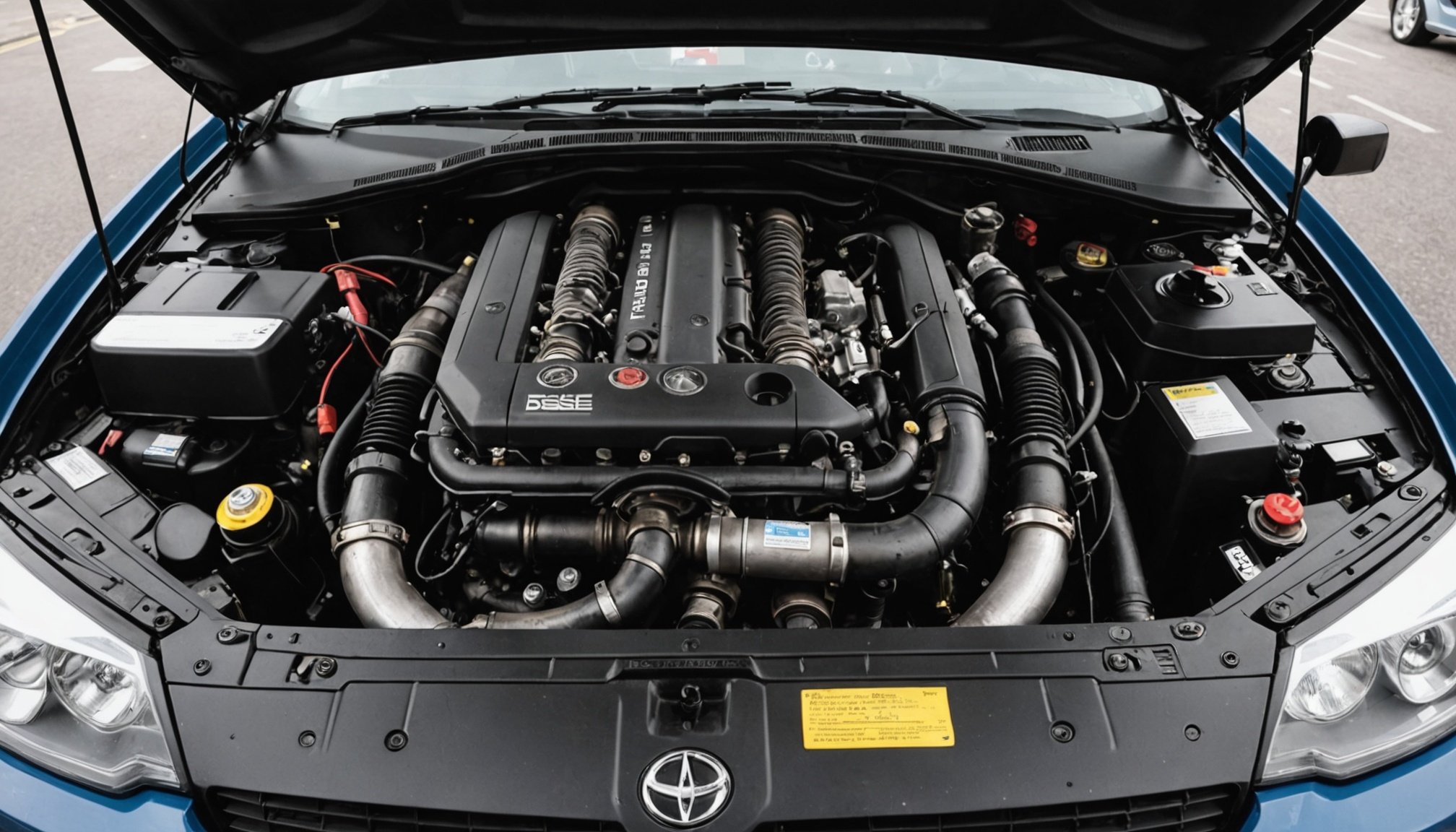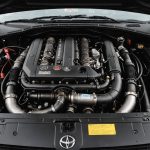If you’re in the market for a new car, one of the most significant decisions you’ll need to make is whether to choose a diesel or petrol engine. This decision will have a significant impact on a range of factors, including cost, emissions, tax implications, and the overall driving experience. This article will dive deep into the differences between diesel and petrol engines, helping you make a well-informed decision.
The driving experience with petrol and diesel engines
Before you decide to invest in a new car, it’s essential to understand how the type of fuel used can influence the driving experience. Diesel and petrol engines work differently, and these differences can significantly affect the way your vehicle will handle on the road.
Also to see : How to choose the right winter tires for your vehicle in the UK?
Diesel engines, for instance, typically provide more torque than their petrol counterparts. This means that diesel vehicles are often more robust and better suited to towing and carrying heavy loads. They’re also generally more fuel-efficient, particularly when driving on motorways or over long distances.
Petrol engines, on the other hand, are usually lighter and more responsive than diesel engines. They offer smoother and quicker acceleration, which can result in a more enjoyable driving experience, especially in city driving. Petrol engines are also typically quieter and produce less vibration than diesel engines, which can lead to a more comfortable ride.
Also read : What are the consequences of driving with non-compliant vehicle modifications in the UK?
However, the experience of driving electric and hybrid vehicles is rapidly improving, with these options becoming increasingly popular in recent years. As a result, many prospective car buyers are now considering these types of vehicles as viable alternatives to traditional petrol and diesel cars.
Fuel efficiency and cost implications
When contemplating between petrol and diesel cars, the topic of fuel efficiency inevitably comes up. Traditionally, diesel engines were more fuel-efficient than petrol ones, which made them the preferred choice for those who frequently covered long distances. But with advances in technology, this gap is narrowing.
While diesel cars may still be slightly more fuel-efficient, the cost of diesel fuel is generally higher than petrol in the UK. This means that you would need to do a substantial amount of driving to offset the higher fuel costs associated with diesel cars.
Furthermore, the initial purchase price of diesel cars is usually higher than petrol cars. This combined with potentially higher insurance costs for diesel vehicles means that the total running costs for a diesel car could be higher than a petrol car, depending on how much you drive.
The cost equation gets even more complicated once you bring electric and hybrid vehicles into the mix. These vehicles tend to have higher upfront costs but offer significant savings in terms of fuel and maintenance costs over the long term.
Tax and insurance implications
Tax and insurance are two further considerations that can affect your decision between a petrol or diesel car. In recent years, changes to the Vehicle Excise Duty (VED) – more commonly known as road tax – have made diesel cars less attractive in the UK.
Since 2018, diesel cars that don’t meet the latest emissions standards are subject to a higher rate of VED in their first year. This, combined with potential increases in insurance costs, can make diesel cars more expensive to run than petrol cars.
It’s also important to note that electric and hybrid cars can provide significant tax advantages. Many electric cars are exempt from VED entirely, while hybrids typically incur lower rates. Additionally, electric and hybrid cars often benefit from lower insurance premiums, making them potentially more cost-effective in the long run.
Emissions and environmental impact
Arguably, the most significant difference between diesel and petrol cars is their impact on the environment. Diesel engines produce more harmful emissions than petrol engines, including higher levels of nitrogen oxides and particulate matter, both of which are harmful to human health.
While petrol engines aren’t entirely clean, they generally produce fewer harmful emissions than diesel engines. They emit less CO2 than diesel engines, which is better for our climate. This is one of the main reasons why many major cities in the UK are implementing low emission zones, where drivers of more polluting vehicles, such as older diesel cars, have to pay a charge to drive within the area.
Electric and hybrid vehicles have the lowest emissions of all. Pure electric vehicles produce zero tailpipe emissions, while hybrids produce significantly less than conventional petrol or diesel cars. This makes them an increasingly popular choice for those who want to reduce their environmental impact.
The future of petrol, diesel, and electric cars
With the rise of electric vehicles and the UK government’s plan to ban the sale of new petrol and diesel cars by 2030, the future of the car industry is set to change dramatically. This will undoubtedly influence your decision when choosing your next car.
While the ban is still some years away, it’s worth considering how this could impact the resale value of petrol and diesel cars in the coming years. On the other hand, the growing demand for electric vehicles will likely lead to more affordable options becoming available in the future.
Overall, the choice between petrol, diesel, and electric cars will depend on your personal circumstances, including your driving habits, budget, and priorities. By understanding the key differences between these options, you can make a well-informed decision that best suits your needs.
Maintenance and longevity of petrol, diesel and electric cars
Choosing between a petrol, diesel or electric car also has implications for maintenance and longevity. The way these engines are built and operate can significantly impact the lifespan and maintenance costs associated with each type of vehicle.
Diesel engines are generally more robust than petrol engines, which can contribute to a longer lifespan. They can also handle higher mileage better than petrol engines. However, diesel engines are more complex and have more parts that could potentially fail. This means that while they may last longer, they can also be more expensive to repair and maintain.
On the other hand, petrol engines are less complex and typically cheaper to repair. However, they might not last as long as diesel engines, especially if they are frequently driven over long distances.
Electric cars offer a different perspective entirely. They have fewer moving parts compared to conventional petrol and diesel engines, which means they generally require less maintenance. However, the battery life can be a concern. Most electric car manufacturers offer warranties for their batteries, usually up to 100,000 miles. Once the warranty expires, replacing the battery can be expensive, although prices are expected to drop as technology improves.
In the end, the choice between a petrol, diesel or electric car in terms of maintenance and longevity will largely depend on your driving habits and preferences. If you plan to do a lot of mileage, a diesel car might be more cost-effective in the long run. If you’re more of a city driver and prefer less maintenance, a petrol or electric car could be the better choice.
Making the decision: Petrol, diesel or electric?
In conclusion, there are several factors to consider when choosing between a petrol, diesel or electric car. The decision will depend on your unique circumstances, including your budget, driving habits, preferences and priorities.
For those who frequently cover long distances and carry heavy loads, diesel cars might be the more economical choice, despite the higher upfront cost and potential tax and insurance implications. Petrol cars, on the other hand, could be a better fit for city drivers who value a smoother and quieter driving experience.
The environmental implications of your decision also cannot be overlooked. Diesel cars produce more harmful emissions than petrol cars, while electric cars have the lowest environmental impact of all. If reducing your carbon footprint is important to you, an electric or hybrid car might be the best choice.
As electric and hybrid vehicles continue to improve in terms of range and affordability, they are becoming increasingly viable alternatives to traditional petrol and diesel cars. Not to mention, with the UK government’s plan to ban the sale of new petrol and diesel cars by 2030, investing in an electric car could be a wise decision for the future.
In the end, the choice is yours to make. It’s crucial to do your research, weigh the pros and cons, and consider your lifestyle. Ultimately, the best car for you is the one that meets your needs, fits your budget, and aligns with your values.










